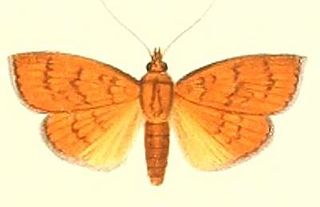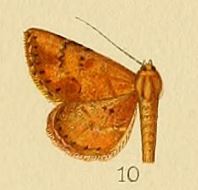Zalmoxis also known as Salmoxis (Σάλμοξις), Zalmoxes (Ζάλμοξες), Zamolxis (Ζάμολξις), Samolxis (Σάμολξις), Zamolxes (Ζάμολξες), or Zamolxe (Ζάμολξε) is a divinity of the Getae and Dacians, mentioned by Herodotus in his Histories Book IV, 93–96, written before 425 BC.

The Zmeu is a fantastic creature of Romanian folklore and Romanian mythology.

Qa is a letter of the Cyrillic script. Its form is based on the Latin letter Q (Q q). Depending on the font, the uppercase form can look like a reversed Cyrillic letter Р, with the lowercase form also resembling a reversed Cyrillic letter Р.
The term Thraco-Illyrian refers to a hypothesis according to which the Daco-Thracian and Illyrian languages comprise a distinct branch of Indo-European. Thraco-Illyrian is also used as a term merely implying a Thracian-Illyrian interference, mixture or sprachbund, or as a shorthand way of saying that it is not determined whether a subject is to be considered as pertaining to Thracian or Illyrian. Downgraded to a geo-linguistic concept, these languages are referred to as Paleo-Balkan.

Cyrillic Iota is a Cyrillic letter based on the Greek letter Iota, and is used in scholarly literature since the 19th century to transcribe Glagolitic Izhe, Ⰹ. The character was introduced into Unicode 5.1 in April 2008, under the character block Cyrillic Extended-B.

Braniștea is a commune in Dâmbovița County, Muntenia, Romania. It is composed of three villages: Braniștea, Dâmbovicioara, and Săvești.

Endotricha ignealis is a moth of the family Pyralidae. It was described by Achille Guenée in 1854 and is found in Australia.

Paliga is a genus of moths of the family Crambidae erected by Frederic Moore in 1886.

Pokrytie is one of the historic diacritical signs of Cyrillic that was used in Old Church Slavonic, later medieval Cyrillic literary traditions and modern Church Slavonic.
Paliga anpingialis is a species of moth of the family Crambidae described by Embrik Strand in 1918. It is found in Taiwan.

Cerynea ignealis is a species of moth in the family Erebidae first described by George Hampson in 1910. It is found in Kenya, Madagascar, South Africa and in São Tomé and Príncipe.
Paliga quadrigalis is a moth in the family Crambidae. It is found on Sumatra and in Australia.
Paliga damastesalis is a moth in the family Crambidae. It was described by Francis Walker in 1859. It is found in Sri Lanka.
Paliga leucanalis is a moth in the family Crambidae. It was described by Charles Swinhoe in 1890. It is found in Myanmar.

Paliga machoeralis is a moth in the family Crambidae. It was described by Francis Walker in 1859. It is found in Sri Lanka, India and Taiwan.
Pyrausta ignealis is a moth in the family Crambidae. It was described by George Hampson in 1899. It is found on New Guinea and Australia, where it has been recorded from Queensland.

Paliga celatalis is a moth in the family Crambidae. It is found in Taiwan and probably in Sri Lanka.

Sorin Paliga is a Romanian linguist and politician. He is a university professor at the University of Bucharest. As a politician, he was the former mayor of Sector 3 of Bucharest from June 1996 to June 2000, and was affiliated with the National Liberal Party (PNL).










